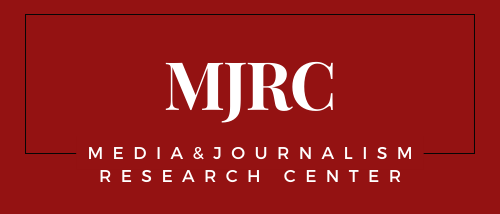Fatima el Issawi
Fatima el Issawi is a Reader in Journalism Studies at the University of Essex and Associate Professor in Journalism (in residence) at Northwestern University in Qatar. She led several research projects on the interplay between media and political change in the region. She recently completed the project “Media and Transitions to Democracy: Journalistic Practices in Communicating Conflicts- the Arab Spring” funded by the British Academy Sustainable Development Programme and looking at media’s impact on communicating political conflicts in post uprisings in North Africa. She is the author of “Arab National Media and Political Change” (Palgrave Macmillan, 2016) and the co-editor of “The Unfinished Arab Spring: Micro-Dynamics of Revolts between Change and Continuity” (Gingko, 2020).
Fluent in English, French and Arabic, she holds a PhD in Media and Journalism Studies from Pantheon-Assas Paris II University. Her multifaceted background brings real-world expertise beyond academia and is reflected in a strong presence on prominent media platforms, including Al Jazeera English, France 24 TV, the New Yorker and The Independent, often publishing and commenting on current affairs and media policy in the region.
Investigating the media activism nexus in the Middle East and North Africa (MENA)
At MJRC, Fatima will continue investigating the media activism nexus in the Middle East and North Africa (MENA) and how the notion of resilience in the dynamics between dissenting actors in media and activism can help independent practices in the region that, eleven years after the beginning of the 2011 Arab uprisings, faces unprecedented authoritarian resurgence.
The research is rooted in the everyday, using a bottom-up approach, considering the lived experience of civil society actors and journalists in the Middle East and North Africa (MENA) on the background of the 2011 Arab uprisings’ consequences. By doing so, the author aims to develop context-specific knowledge on how the complex interplay between journalism and activism is supporting or hindering the formation of resilient public spheres in times of authoritarian resurgence. The project explores the significance this interplay has for journalistic practices and professional identities, as well as the multiple meanings and possibilities for activism and grassroots participation in the societies considered. The project will cover four case studies: Lebanon and Sudan, as new revolts that emerged against the backdrop of corruption and autocracy, and Tunisia and Egypt, as part of the first wave of revolts that led to regime change, and are currently challenged by resurgent autocracy, populism, conflict, and corruption.
In addition to its important policy implications, the research will bring important and novel theoretical contributions using resilience as a useful concept in media and journalism studies, to understand media practices under political retrenchment.
Invest in independent media research and join a community of practice.
Your contribution supports MJRC’s investigations and global analysis. As a supporter, you can receive early access to new findings, invitations to small-group briefings, inclusion in our Supporters Circle updates, and the option to be listed on our Supporters Page.
Contribute to MJRC
